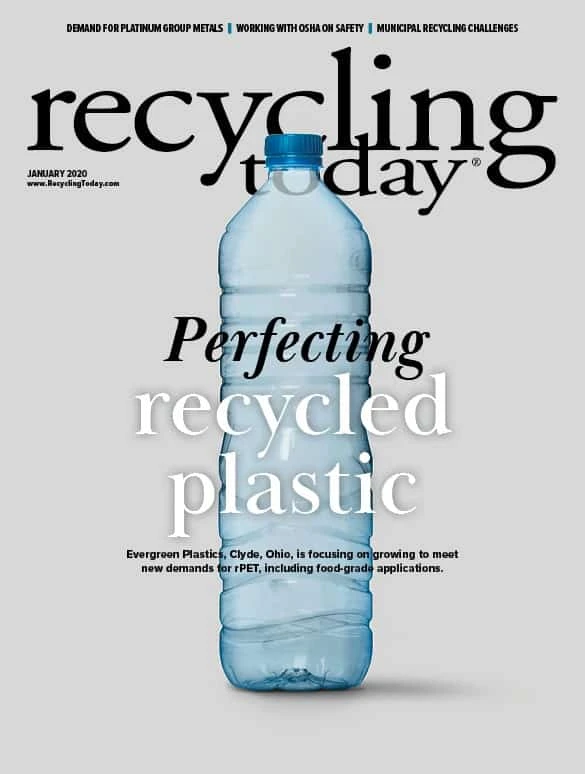2019 proved to be a painful year for paper packers and material recovery facility (MRF) operators trying to move recovered fiber. Prices for old corrugated containers (OCC) slid down from a national average price of $69 per ton in January 2019 to only $22 per ton in November 2019, while mixed paper stayed at a national average price of about -$3 per ton for the majority of the year based on Fastmarkets RISI’s PPI Pulp & Paper Week recovered paper pricing.
OCC remained at a national average price of $22 per ton in the December 2019 buying period, and mixed paper prices remained at a national average price of -$3 per ton, according to Fastmarkets RISI’s PPI Pulp & Paper Week Dec. 5, 2019, recovered paper pricing report. Sorted office paper (SOP) fell by about $5 per ton in some domestic and export markets in the December 2019 buying period.
MRF operators reported an uptick in the amount of OCC and old newspapers (ONP) arriving in their inbound material streams in the first few weeks of December as a result of the holiday season, and domestic paper mills also demanded slightly more material in December. However, with the holiday season came tougher conditions for freight and logistics in the U.S., and rates for trucks were especially high because of demand.
“Recycling is suffering because China is going to start recovering its own material and likely won’t be buying recycled paper.” – a MRF operator based in the Midwest
“There are a few disruptions in terms of logistics,” says a MRF operator based in the Midwest. “This year we have Christmas and New Year’s on Wednesdays. There will be trucking companies that take that time off, so there are those kinds of disruptions.”
A second MRF operator based in the Midwest adds that it’s a tough time of year to secure trucks. He says his company locked in freight ahead of the holiday season to ensure more affordable rates.

Looking to the new year, few recyclers think prices will jump up much if at all. The second MRF operator in the Midwest says he thinks it could take a while before prices for OCC and mixed paper begin to really rise again.
“The tariffs are still an issue,” he says, adding that because of the ongoing U.S.-China trade war, “we’re not going to be able to instantly recover from this problem or the unintended consequence of raw material no longer having demand. Recycling is suffering because China is going to start recovering its own material and likely won’t be buying recycled paper.”
“Here we are finishing 2019, and we’ve been languishing in very challenging markets for two years,” adds a broker on the East Coast.
“Everyone’s experiencing the same market. Export markets are challenging right now.” – a national mill buyer
Also, issues could arise in exporting recovered fiber to Indonesia in particular. In late November 2019, that nation finalized its import regulations for all scrap commodities, including recovered fiber, and the Institute of Scrap Recycling Industries (ISRI), Washington, reports that they are much stricter than originally anticipated. According to ISRI, sources told the association that the impurity threshold may remain at zero in Indonesia.
“They’re demanding cleaner material and their inspection process is uncertain,” the broker based on the East Coast says of Indonesia’s new scrap import standards.
Heading into 2020, industry sources say export conditions for recovered fiber are expected to remain difficult.

“Everyone’s experiencing the same market. Export markets are challenging right now,” a national mill buyer says.
“We’ll see in the beginning of the year how Southeast Asia and China will react,” he adds. “That will influence our domestic market in turn.”
However, the first MRF operator in the Midwest says new export opportunities could be coming online for recovered fiber in the form of recycled pulp.
“China is continuing to reduce the amount of material [it allows] into the country,” he says, referring to recovered fiber bales. “But there are mills that are buying U.S. fiber and then making pulp out of it to send to China. Those markets are continuing to improve,” the first Midwest MRF operator adds, “so the [OCC] ends up in China but in the form of pulp from another country like Vietnam, South Korea or Taiwan.”

Explore the January 2020 Issue
Check out more from this issue and find your next story to read.
Latest from Recycling Today
- Aqua Metals secures $1.5M loan, reports operational strides
- AF&PA urges veto of NY bill
- Aluminum Association includes recycling among 2025 policy priorities
- AISI applauds waterways spending bill
- Lux Research questions hydrogen’s transportation role
- Sonoco selling thermoformed, flexible packaging business to Toppan for $1.8B
- ReMA offers Superfund informational reports
- Hyster-Yale commits to US production





